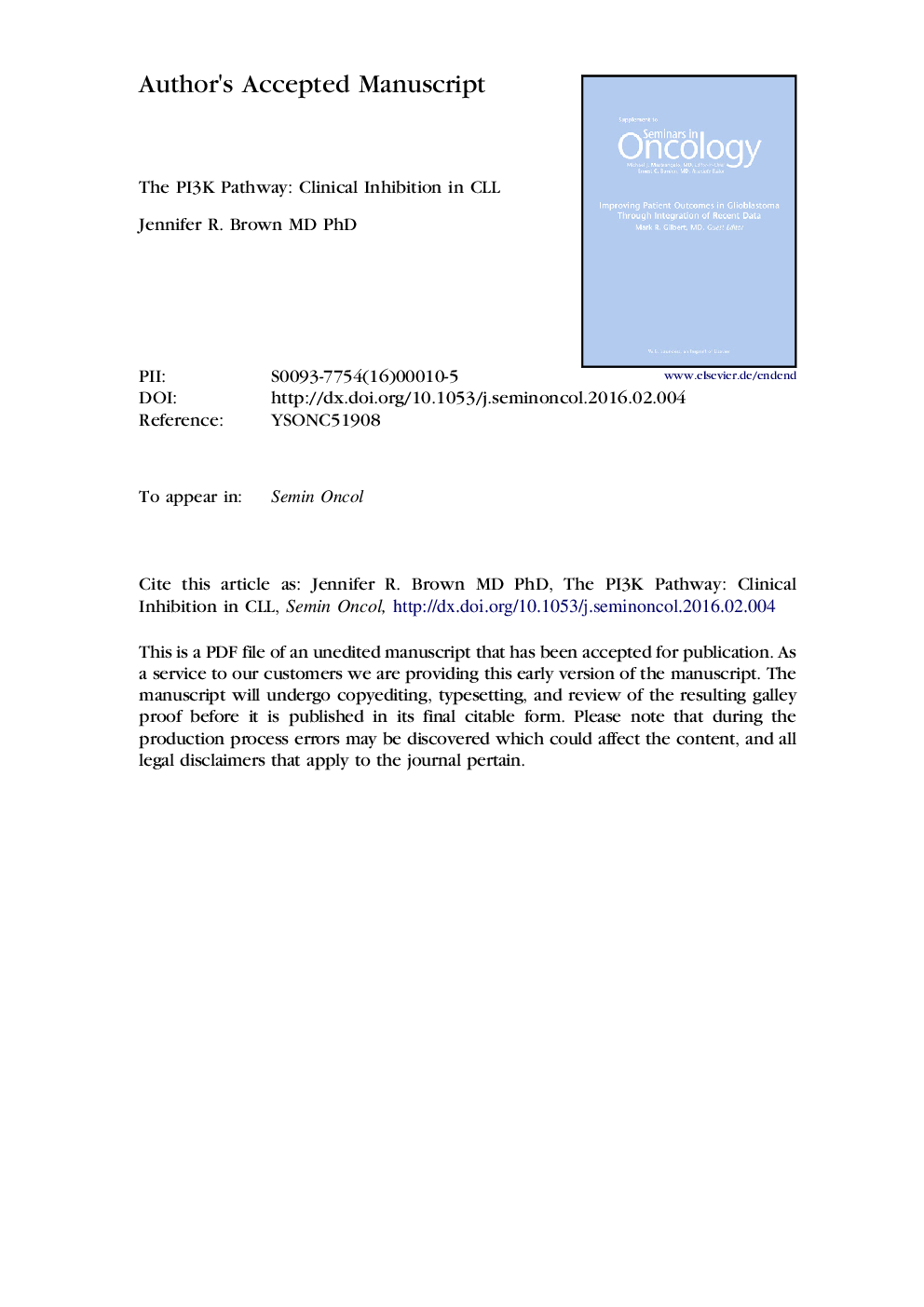| Article ID | Journal | Published Year | Pages | File Type |
|---|---|---|---|---|
| 2161750 | Seminars in Oncology | 2016 | 18 Pages |
Abstract
Constitutive or mutational activation of the phosphatidylinositol 3 kinase, or PI3K, has been implicated in many cancers, including chronic lymphocytic leukemia (CLL). The δ isoform of the p110 catalytic subunit of PI3K has its primary physiologic function in B cells and appears to be the predominant mediator of most PI3K signals in CLL cells. Idelalisib is a first-in-class inhibitor of the PI3K delta isoform that shows near complete inhibition of AKT phosphorylation in CLL cells in vitro and in vivo. Idelalisib shows the classic pattern of response to BCR inhibition in CLL, with rapid nodal response and transient increase in lymphocytosis. The phase I study established the recommended dose as 150 mg twice per day. Subsequent registration trials have focused predominantly on antibody combinations, leading to the US Food and Drug Administration (FDA) approval of idelalisib with rituximab for relapsed CLL patients for whom rituximab is appropriate therapy in summer 2014. The median progression-free survival (PFS) of idelalisib-rituximab in this heavily pretreated CLL population with multiple comorbidities and frequent 17p deletion was an impressive 19.4 months. The success of idelalisib has paved the way for the development of other PI3K inhibitors in CLL, including duvelisib and TGR-1202, which are in or moving toward registration trials.
Keywords
Related Topics
Life Sciences
Biochemistry, Genetics and Molecular Biology
Cancer Research
Authors
Jennifer R. Brown,
